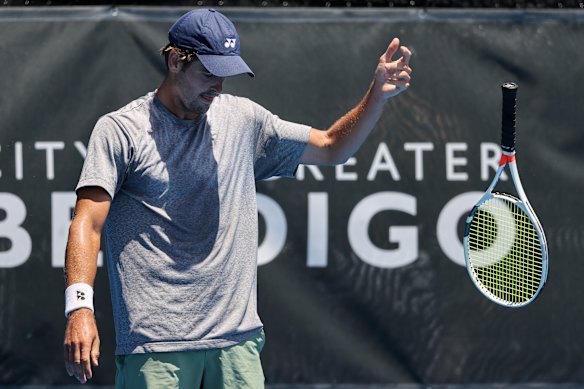A second Australian tennis player in four months has been hit with a lengthy suspension for breaching the sport’s anti-doping rules over intravenous infusion of vitamins.
Thomas Fancutt, 30, was provisionally suspended in March but the sport’s anti-doping watchdog, the International Tennis Integrity Agency (ITIA), this week hit the doubles player with a 10-month ban – a suspension which ends in January before the Australian Open.

Fancutt throws his racquet during a match against Mirza Basic in Bendigo in 2022.Credit: Getty Images
Fancutt has admitted to using a “prohibited method” as defined by the ITIA’s anti-doping program. Athletes are permitted to use IV drips, but only when fluid is below a certain threshold and within a specific time period.
Fancutt’s case follows that of Australia’s doubles champion Max Purcell who was hit with an 18-month ban in April for breaching the anti-doping rules after ITIA investigators found messages on his mobile phone in which he discussed ways he could justify receiving intravenous infusions.
Two-time grand slam doubles champion Purcell was also found by the ITIA to have used a “prohibited method” – by receiving infusions of more than 500 millilitres in December 2023.
In Fancutt’s case, the ITIA said the player had received an intravenous infusion over the accepted limit in December, 2024.
“The ITIA sent the player a notice of a potential anti-doping rule violation (ADRV) on 7 March 2025,” the agency said in a statement.
“On 19 March 2025, the player requested to enter into a voluntary provisional suspension, which came into effect immediately.
“Following a full investigation by the ITIA, which included evidence gathering and interviews with the player, Fancutt admitted to the breach, and the ITIA accepted that the breach was not intentional.

